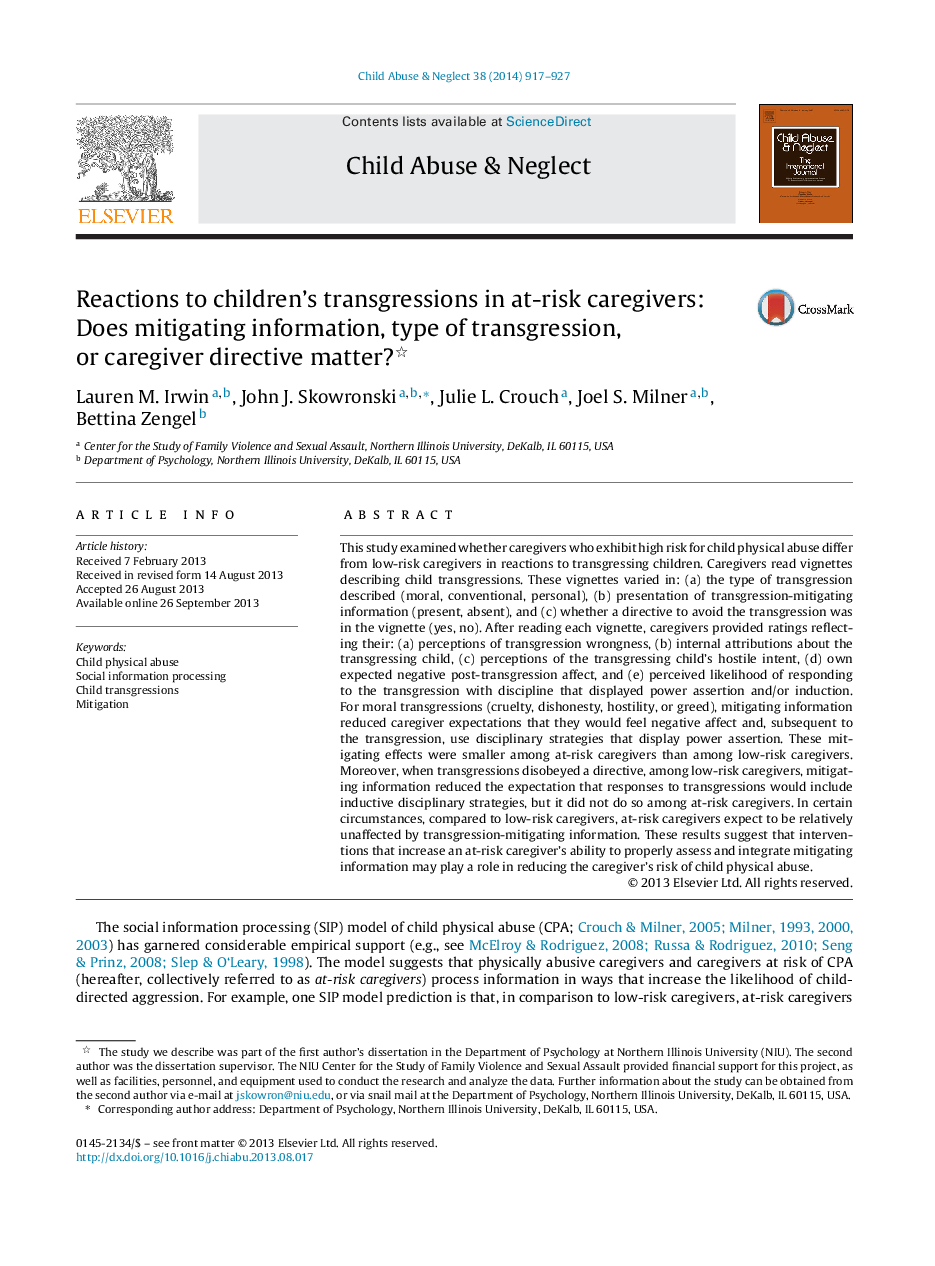| کد مقاله | کد نشریه | سال انتشار | مقاله انگلیسی | نسخه تمام متن |
|---|---|---|---|---|
| 344720 | 617446 | 2014 | 11 صفحه PDF | دانلود رایگان |

This study examined whether caregivers who exhibit high risk for child physical abuse differ from low-risk caregivers in reactions to transgressing children. Caregivers read vignettes describing child transgressions. These vignettes varied in: (a) the type of transgression described (moral, conventional, personal), (b) presentation of transgression-mitigating information (present, absent), and (c) whether a directive to avoid the transgression was in the vignette (yes, no). After reading each vignette, caregivers provided ratings reflecting their: (a) perceptions of transgression wrongness, (b) internal attributions about the transgressing child, (c) perceptions of the transgressing child's hostile intent, (d) own expected negative post-transgression affect, and (e) perceived likelihood of responding to the transgression with discipline that displayed power assertion and/or induction. For moral transgressions (cruelty, dishonesty, hostility, or greed), mitigating information reduced caregiver expectations that they would feel negative affect and, subsequent to the transgression, use disciplinary strategies that display power assertion. These mitigating effects were smaller among at-risk caregivers than among low-risk caregivers. Moreover, when transgressions disobeyed a directive, among low-risk caregivers, mitigating information reduced the expectation that responses to transgressions would include inductive disciplinary strategies, but it did not do so among at-risk caregivers. In certain circumstances, compared to low-risk caregivers, at-risk caregivers expect to be relatively unaffected by transgression-mitigating information. These results suggest that interventions that increase an at-risk caregiver's ability to properly assess and integrate mitigating information may play a role in reducing the caregiver's risk of child physical abuse.
Journal: Child Abuse & Neglect - Volume 38, Issue 5, May 2014, Pages 917–927